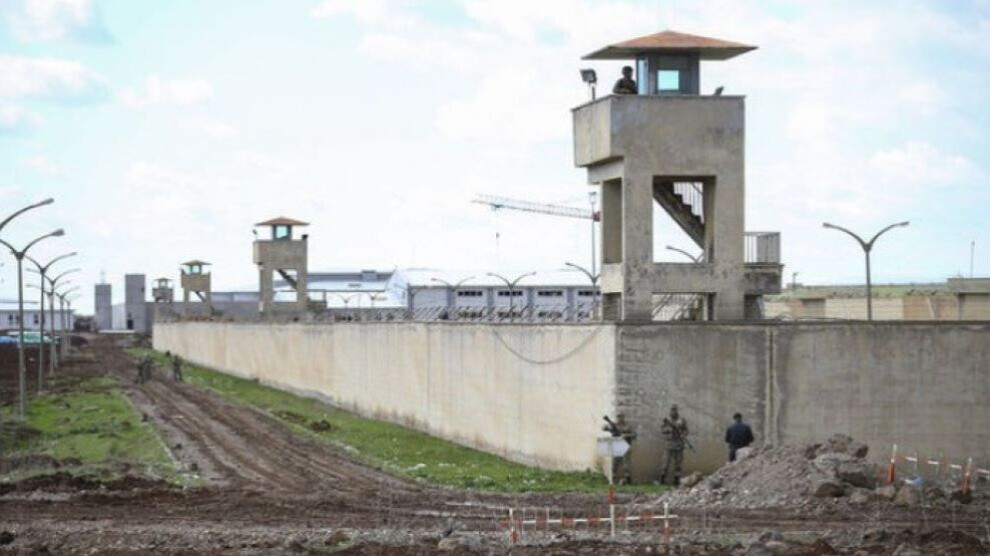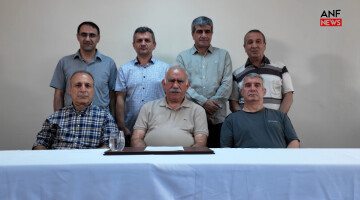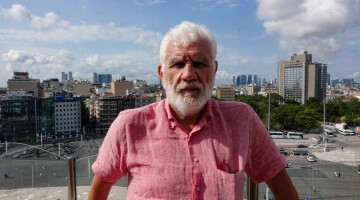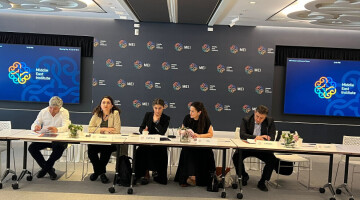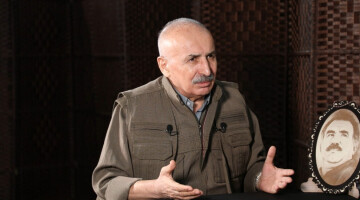One of the clearest features of the situation that the AKP government has brought Turkey into during its 20-year tenure with its totalitarian mind-set, dubbed “one-man regime”, are the prisons. According to the Turkish Ministry of Justice, as of 31 January 2022, there were a total of 303,389 people in prison, including 38,359 pre-trial prisoners and 265,030 convicts. 289,684 prisoners are men, 11,823 women and 1882 under-18.
According to the Council of Europe's 2020 criminal statistics, Turkey is the member state with the highest number of prisoners in terms of population. Out of 100,000 inhabitants, 357 people were in custody. As the government boasts that it will build more prisons, it is expected to retain its top place among the 47 member countries.
36 new prisons
For the construction of 36 new prisons, the Ministry of Justice has been provided with a budget of almost two billion TL (about 61,000,000 euros) for 2022 through the investment program approved by President Tayyip Erdogan. Last year 2,246,000,000 TL from the state budget was spent on prison construction.
A look at the deaths in prisons, the information that has emerged about ill prisoners, the reports of prisoners' relatives and the periodically published reports from human rights organizations make it clear that the prisons have degenerated into torture centers in which the right to life is not respected and inhuman and degrading measures are applied. The oppression, violence and violations of law in prison and pre-trial detention today can be compared to the terror regime that was established after the military coup of 12 September 1980 in the notorious torture prison in Amed (tr. Diyarbakir) by senior officer Esat Oktay Yıldıran . Since prisoners receive the same treatment in different prisons, a systematic policy can be assumed.
Increasing requests for support from the IHD
Concerned relatives of prisoners are referring to the human rights organizations. One of these institutions is the office of the human rights association IHD in Amed. Because one request for support follows the next, it is very busy there.
Şeyhmus Başkan described the case of his son Davut Başkan to the Human Rights Association. The 28-year-old has been in prison for 12 years and was transferred from Kayseri to Afyon-Bolvadin three months ago. According to his father, he was to be subjected to a degrading strip search when he was admitted to the new institution. He fought back and was beaten by the guards. On 22 February, he told his family about it by phone. When he said that the law enforcement officials called him a terrorist and physically abused him and the punch marks were still visible on his body, the connection was suddenly cut off. The phone rang again for five minutes. Davut had been insulted and threatened by the security guards because of his description of the mistreatment he had suffered.
"I fear for my son"
Şeyhmus Başkan wants to file a complaint against the prison staff and asks the IHD for legal support. He worries about his son and, despite his advanced age and his own poor health, does everything in his power to make his voice heard. The case was even introduced in parliament by HDP MP Ömer Faruk Gergerlioğlu. When he called the Ministry of Justice, the father was told that there were many complaints about the prison. "I fear for my son. If something happens to him, the Ministry of Justice is responsible,” said Şeyhmus Başkan: “Our children are exposed to pressure and violence and cannot use their statutory rights. We call for a parliamentary commission of inquiry that sees everything in prison with its own eyes and listens to the prisoners.”
"Esat Oktay is not dead"
Another applicant at the IHD is Remziye Alan. Her son Mazlum Alan is held in Izmir-Buca. The 29-year-old is sentenced to life imprisonment and has been in prison for eleven years. His family has no money and has not been able to visit him for three years. Remziye Alan says that her son was transferred from Bolu to Buca in 2019 during the hunger strike initiated by the Kurdish politician Leyla Güven and that he was diagnosed with liver cancer during this time.
Commenting on her son's detention conditions, Remziye Alan said: “During our last phone call, Mazlum said that he and his friends are being subjected to pressure and abuse. They only get a spoon full of food. It seems like the guards are making fun of them. Letters are not given to them. He said their complaints about it were confiscated. When they objected, they got the answer 'Esat Oktay is not dead, he lives here.' Mazlum said we absolutely had to get him out of there. He is very ill. If he was moved to Amed I could see him at least once a month.”

